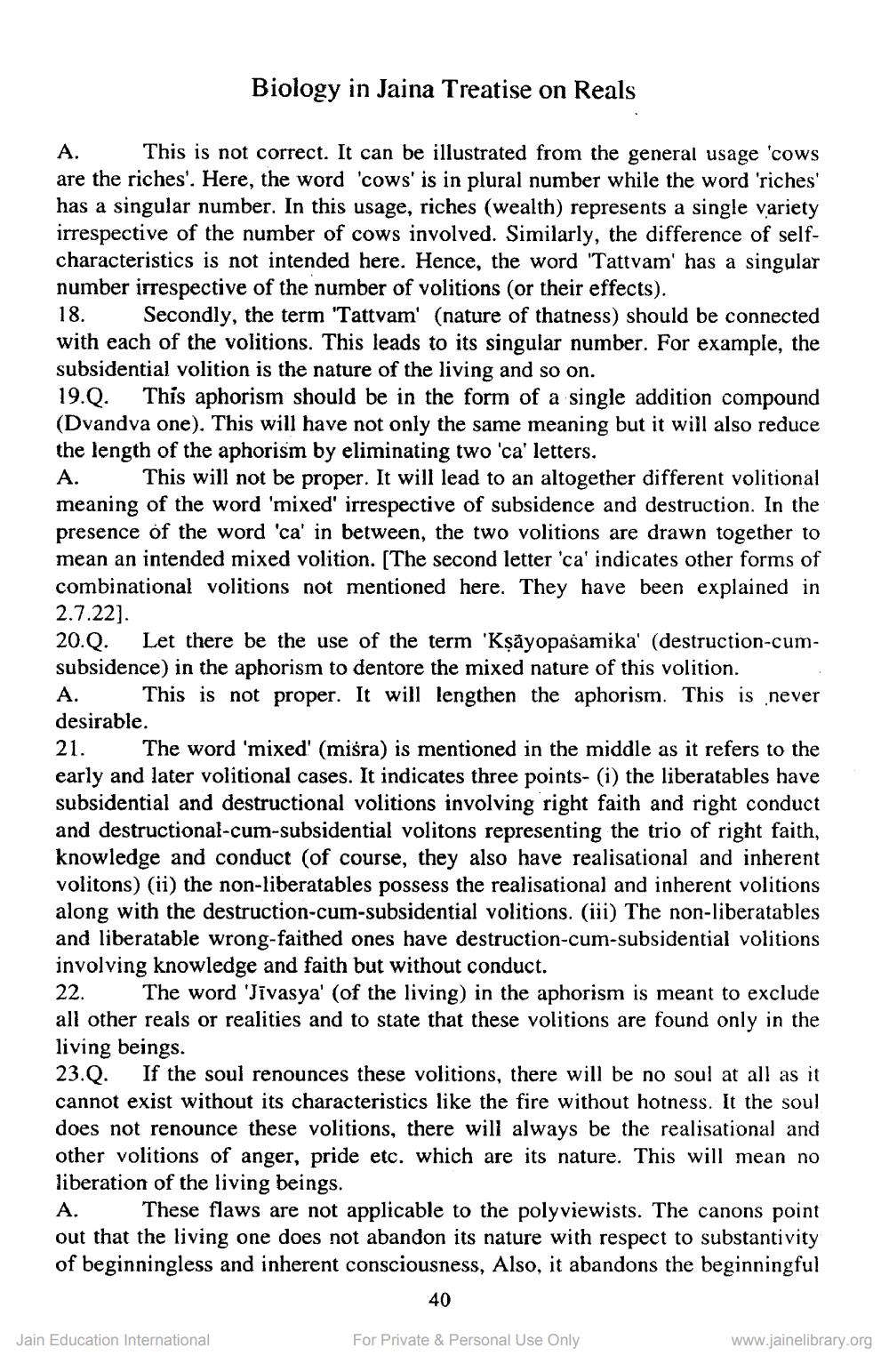________________
Biology in Jaina Treatise on Reals
A.
18.
This is not correct. It can be illustrated from the general usage 'cows are the riches'. Here, the word 'cows' is in plural number while the word 'riches' has a singular number. In this usage, riches (wealth) represents a single variety irrespective of the number of cows involved. Similarly, the difference of selfcharacteristics is not intended here. Hence, the word "Tattvam' has a singular number irrespective of the number of volitions (or their effects).
Secondly, the term 'Tattvam' (nature of thatness) should be connected with each of the volitions. This leads to its singular number. For example, the subsidential volition is the nature of the living and so on. 19.Q. This aphorism should be in the form of a single addition compound (Dvandva one). This will have not only the same meaning but it will also reduce the length of the aphorism by eliminating two 'ca' letters. A. This will not be proper. It will lead to an altogether different volitional meaning of the word 'mixed' irrespective of subsidence and destruction. In the presence of the word 'ca' in between, the two volitions are drawn together to mean an intended mixed volition. [The second letter 'ca' indicates other forms of combinational volitions not mentioned here. They have been explained in 2.7.22). 20.Q. Let there be the use of the term 'Ksãyopašamika' (destruction-cumsubsidence) in the aphorism to dentore the mixed nature of this volition. A. This is not proper. It will lengthen the aphorism. This is never desirable. 21. The word 'mixed' (mišra) is mentioned in the middle as it refers to the early and later volitional cases. It indicates three points- (i) the liberatables have subsidential and destructional volitions involving right faith and righ and destructional-cum-subsidential volitons representing the trio of right faith, knowledge and conduct (of course, they also have realisational and inherent volitons) (ii) the non-liberatables possess the realisational and inherent volitions along with the destruction-cum-subsidential volitions. (iii) The non-liberatables and liberatable wrong-faithed ones have destruction-cum-subsidential volitions involving knowledge and faith but without conduct. 22. The word 'Jivasya' (of the living) in the aphorism is meant to exclude all other reals or realities and to state that these volitions are found only in the living beings. 23.Q. If the soul renounces these volitions, there will be no soul at all as it cannot exist without its characteristics like the fire without hotness. It the soul does not renounce these volitions, there will always be the realisational and other volitions of anger, pride etc. which are its nature. This will mean no liberation of the living beings. A. These flaws are not applicable to the polyviewists. The canons point out that the living one does not abandon its nature with respect to substantivity of beginningless and inherent consciousness, Also, it abandons the beginningful
40
Jain Education International
For Private & Personal Use Only
www.jainelibrary.org




